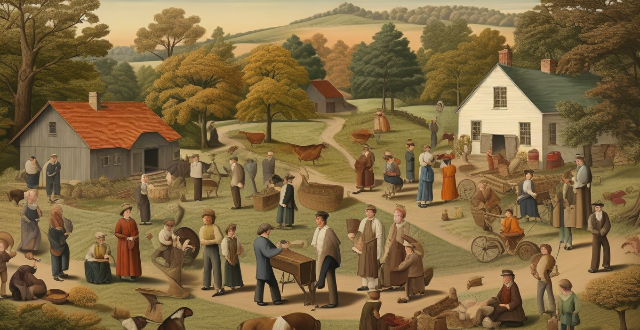Historic places have had a significant cultural impact on society by preserving history and heritage, offering educational opportunities, contributing to local economies, fostering social cohesion, and inspiring creativity. These sites serve as tangible links to the past, allowing us to learn about our ancestors' lives, customs, and beliefs while providing numerous benefits for present-day society.

Cultural Impact of Historic Places on Society
Historic places have had a significant cultural impact on society. They serve as tangible links to the past, preserving the memories and traditions of previous generations. These sites are not only important for their architectural or aesthetic value but also for the stories they tell about the people who lived there.
Preservation of History and Heritage
One of the most obvious cultural impacts of historic places is the preservation of history and heritage. These sites provide a physical connection to the past, allowing us to learn about our ancestors' lives, customs, and beliefs. By visiting these places, we can gain a deeper understanding of our cultural roots and how they have shaped the world we live in today.
Educational Opportunities
Historic places offer numerous educational opportunities for people of all ages. Schools often organize field trips to these sites, providing students with hands-on learning experiences that help them better understand history and culture. Additionally, many historic places offer guided tours, workshops, and interactive exhibits that engage visitors and encourage them to explore further.
Economic Benefits
Another cultural impact of historic places is their contribution to local economies. Tourism generated by these sites can create jobs, stimulate business growth, and increase tax revenue for surrounding communities. Furthermore, many historic places are used as filming locations for movies and television shows, which can bring additional attention and financial benefits to the area.
Social Cohesion
Historic places can also foster social cohesion within communities by serving as gathering places for residents and visitors alike. Festivals, concerts, and other events held at these sites help build a sense of belonging and pride among locals while promoting cultural exchange between different groups. This shared experience can lead to increased understanding and appreciation of diverse perspectives.
Inspiration for Artists and Creatives
Finally, historic places have inspired countless artists, writers, and musicians throughout history. The unique architecture, intricate designs, and rich history of these sites have served as sources of inspiration for creative works that reflect our collective cultural identity. Many famous works of art, literature, and music were created in response to or influenced by historic places.
In conclusion, historic places play a vital role in preserving our cultural heritage, providing educational opportunities, stimulating economic growth, fostering social cohesion, and inspiring creativity. As such, it is essential that we continue to protect and maintain these valuable sites for future generations to enjoy and learn from.